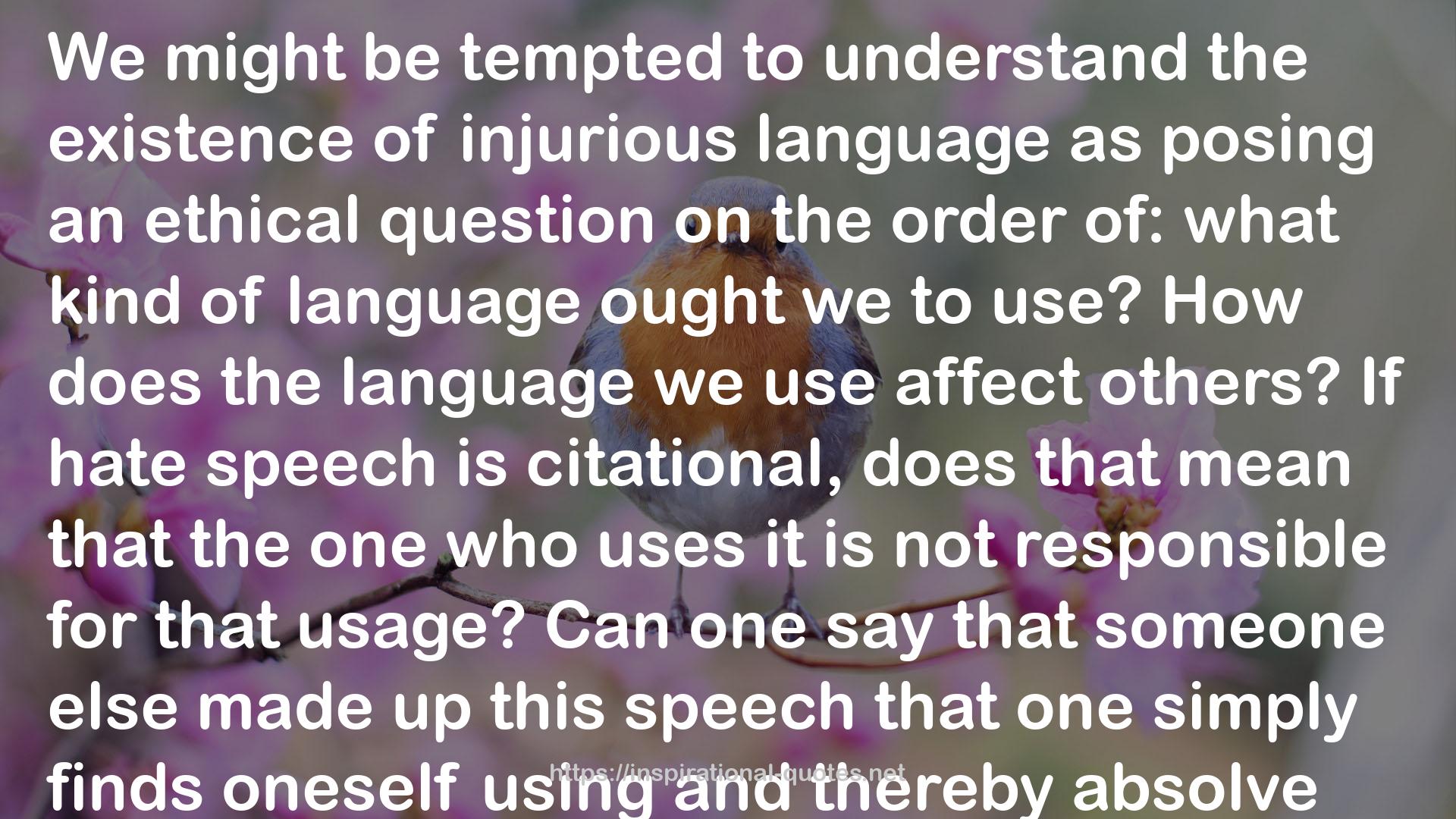" We might be tempted to understand the existence of injurious language as posing an ethical question on the order of: what kind of language ought we to use? How does the language we use affect others? If hate speech is citational, does that mean that the one who uses it is not responsible for that usage? Can one say that someone else made up this speech that one simply finds oneself using and thereby absolve oneself of all responsibility? I would argue that the citationality of discourse can work to enhance and intensify our sense of responsibility for it. The one who utters hate speech is responsible for the manner in which such speech is repeated, for reinvigorating such speech, for reestablishing contexts of hate and injury. The responsibility of the speaker does not consist of remaking language ex nihilo, but rather of negotiating the legacies of usage that constrain and enable that speaker’s speech. To understand this sense of responsibility, one afflicted with impurity from the start, requires that we understand the speaker as formed in the language that he or she also uses. This paradox intimates an ethical dilemma brewing at the inception of speech. "
― Judith Butler , Excitable Speech: A Politics of the Performative
